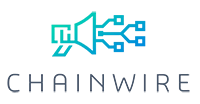Even as the price of Bitcoin and other cryptocurrencies continue to rise at a steady pace, most are still hesitant to invest in the digital asset world. Small (and large investors) are often comfortable staying within their knowledge circles concerning financial assets.
Research from JPMorgan published in March revealed 78% of surveyed investors admitted it was unlikely they would invest or offer crypto trading services.
Others are scared off by negative press and discouraging remarks by influential figures like Treasury Secretary Janet Yellen, even as Elon Musk continues to tout crypto on Twitter. Many are simply wary of potentially losing large amounts of money in a crypto scam due to an exchange hack or losing private keys.
Many investors still work with traditional financial institutions to have their money work for them instead of taking risks in an ‘unregulated’ crypto market.
Understanding How COVID Has Shaped Insurance and Investor Confidence
In the United States, bank deposits are insured by the Federal Deposit Insurance Corporation (FDIC) and underpinned by the Bank Insurance Fund. These standards insure every depositor to at least $250,000 per bank.
Even though there is no insurance for those who invest in the stock market, the United States also enacted the Securities Investor Protection Corporation (SPIC) in the 1970s to cover investment losses if a broker or dealer goes bankrupt.
The economic fallout from the coronavirus pandemic has left many turning towards strategies to protect investments and assets. Some choose ‘safer’ vehicles like an annuity, where a guaranteed payout is received over a number of years after handing over a large initial sum.
Global supply disruptions and renewed interest in bullion as a ‘safe haven’ asset led to strong precious metal prices across 2020. As of early January 2021, silver’s then YTD gain rested around 44%. Gold was up nearly 24%.
Insurance for Cryptocurrencies? The Industry Continues to Grow
It’s clear investors have an appetite for safe investments and want to park assets in entities like banks that maintain insurance.
As a result, many still remain skeptical about a cryptocurrency market that they perceive as lacking security, despite the potential for strong profits.
However, the alluring nature of cryptocurrency has fueled discussions of how to insure digital assets. Insurance firm Marsh & McLennan formed a team of ten solely focused on blockchain startups. Aon, a financial risk mitigation firm, noted some insurers are beginning to add crypto insurance as part of their general policies.
Still, the amount of available insurance coverage for crypto only totals around $6 billion, a far cry from the $1.7+ trillion global market capitalization for digital currency.
As a result, some decentralized finance (DeFi) projects like Cook Finance are looking to make moves in the nascent crypto insurance field by building a token complete with an insurance policy.
Major Announcement!? Time to feast on what we've been cooking! See the Cook Testnet on your screen and explore the interface now! ????️ ?️?
Combining DeFi With Insurance
Cook Protocol is a decentralized asset management platform built for investors and asset managers to open financial options in the rapidly growing crypto asset management industry.
Investors on the platform can select from options offered by fund managers on an attractive and easy to use interface complete with trading tools.
Protocol users utilize COOK to perform various tasks, from voting to add new features, calculating investment fund values, adjust platform fees, or even modify the platform’s governance model.
Smart contract development is built on the industry standard OpenZeppelin architecture. In a unique move, the Cook Protocol team utilizes Nexus Mutual to insure the entire protocol and assure investors about fund security. Fund-specific insurance options are also available for purchase on an individual basis.
Nexus Mutual is a decentralized, blockchain-based insurance fund that pools funds through smart contracts.
Cook Protocol pays into the fund with Nexus’ NXM tokens, while the platform uses arithmetic to calculate the number of claims the fund can properly insure to prevent overleveraging.
Nexus argues their community-based model is a better alternative than placing trust in an insurance company, as members stand to gain economically from participating in risk and claims assessment.
Cook Protocol’s use of insurance to underpin the platform allows investors wary of a ‘wild’ cryptocurrency industry an opportunity to diversify their portfolio and invest in the rapidly growing DeFi world. As decentralized finance only continues to gain momentum and provide innovative ways to make money, the ability to insure user funds will only solidify investor confidence and bring new members into the space who might have remained wary beforehand.







